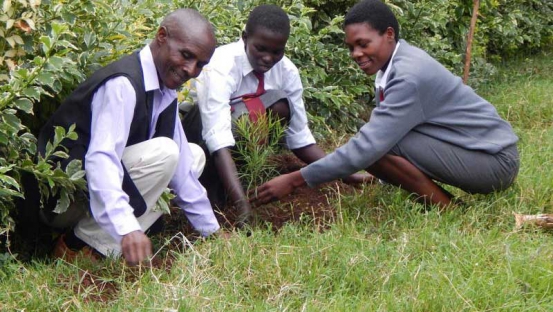×
The Standard e-Paper
Smart Minds Choose Us

He is not just a teacher, but Ogeto Keraro is a respected environmentalist at Asumbi Teachers’ Training College and the neighbouring community.
When he started an environment/wildlife club in 2005, he did not think much of it. Today, the club of about 700 students has planted over 35,000 trees on the institution’s land and is now spreading its wings to the community in Homa Bay and the entire South Nyanza region.